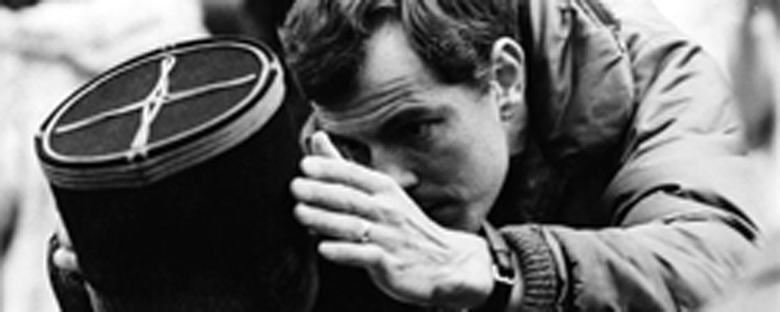Credits
Feature by: Leo Goldsmith
Posted on: 19 June 2005
Related articles:
Reviews: Edvard Munch (by Leo)
Reviews: Edvard Munch (by Ian)
Reviews: The Gladiators
Reviews: Punishment Park
External links:
A typical Peter Watkins film might begin with a voiceover (often Watkins’ own) or a title card that describes what is seen onscreen. It rehearses a slew of dates, facts, and figures, or even explains the conditions of the making of the film itself. Culloden begins with a description of a well-armed English battalion on its way to suppress the Jacobite rebellion on a spring day in 1746; The War Game with a brief explanation of the nuclear deterrent policy of Britain in the early 1960s; Punishment Park with an account of the power to suspend the legal rights of potential insurrectionists, as granted to the American president under the 1950 McCarran Act; and La Commune (Paris, 1871) with two actors describing the process of filming a reenactment of the history of the Paris Commune. Thus, these opening scenes invite us into their respective documentary realities, with a seemingly conventional and reassuring specificity of setting and detail, and a matter-of-fact, authoritative narration.
But almost immediately this reassurance vanishes. Figures from the eighteenth century stare back at us through the camera and answer questions posed to them by twentieth-century television crews; we see hyper-realistic footage of a nuclear strike on Kent, England; the sound of a radio broadcast announces an escalation of the Vietnam War in response to a bombing of Seoul, South Korea; and nineteenth-century communards sit around a television set that is broadcasting the latest newsflash from Versailles.
Peter Watkins’ films are always situated in an uneasy relation to their subject matter. His films of historical reconstruction (such as Culloden, Edvard Munch, and La Commune) and, as Stuart Cunningham terms it, of historical “pre-construction” (The War Game, Privilege, The Gladiators, and Punishment Park) consistently push the formal and thematic limits of documentary practice in depicting events that never happened, or those that possibly never will. In so doing, Watkins uses his documentaries not only to interrogate the historical or imminent periods he is depicting, but also to question the assumptions and conditions of the present time.
In this way, Watkins’ radical documentary practice is a direct challenge to the form and function of the mass media in contemporary society. Since his earliest short films (like the Eisensteinian 1961 film, The Forgotten Faces), his mode of filmmaking has placed images, events, political arguments, and modes of representation into a cinematic dialectic that undermines his audience’s assumptions about documentary fact and fiction. Collaborating with amateur actors and participants — some expressing their own opinions — Watkins persistently seeks to destabilize the media’s claims of authoritative objectivity.
Where his first films mainly conform to the formal standards of the television medium in which he served his apprenticeship, Watkins’ later films consistently and increasingly push the margins of normative film and documentary practice. His earlier films favor a rapid and acrobatic editing style, reminiscent of Soviet montage, while his later films explore the technical and temporal limits of the sequence shot. His earlier works, made ostensibly for the BBC, are of standard TV documentary length, while all of his most recent films are considerably longer than standard features (his last film, La Commune is nearly five hours in length, and 1985’s The Journey clocks in at over fourteen hours).
But Watkins’ most obvious (and infamous) quality is his passionate and unabashed eagerness to meet political issues head-on. In all of his films, Watkins directly confronts the political, whether explicitly criticizing a government policy or institutional school of thought, or contextualizing and demythologizing a remote historical period. In a time and place in which politics is not a polite subject of conversation, and in a broadcast medium that pays lip-service to “fair and balanced” debate, Watkins’ position as gadfly has invariably been met with widespread derision, censorship, and aggression.
With the ongoing rerelease of his films, both theatrically and on DVD, Watkins seems poised to claim some of the recognition long denied him. After a career of critical and institutional antipathy and public indifference, Watkins no longer seems a hysterical alarmist or paranoid, left-wing provocateur, but a prescient political analyst, a thoughtful critic of (and participant in) the mass media, and a masterful formal innovator. Passionately political, unabashedly biased, shockingly violent, and often mordantly funny, Watkins’ films reconstruct pasts and anticipate futures that are never comfortably remote from our own time and place. Watkins situates his audience in a disquietingly ambiguous position between past and future, fact and fiction, and a variety of different political viewpoints.
We don’t do comments anymore, but you may contact us here or find us on Twitter or Facebook.



